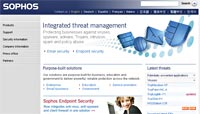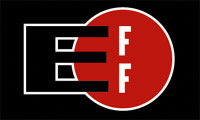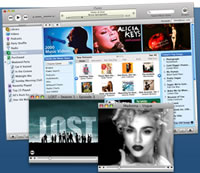 In 2004 the networking giant Cisco sued a little-known Chinese company called Huawei for IP (Intellectual Property) theft. Some two months later the case was dropped and settled out of court. Huawei promised to modify their designs, change their software and manuals. Rumours circulating at the time alleged that the Chinese government got involved and told Cisco that if they wanted to operate in China, they should leave Huawei alone.
In 2004 the networking giant Cisco sued a little-known Chinese company called Huawei for IP (Intellectual Property) theft. Some two months later the case was dropped and settled out of court. Huawei promised to modify their designs, change their software and manuals. Rumours circulating at the time alleged that the Chinese government got involved and told Cisco that if they wanted to operate in China, they should leave Huawei alone.
Huawei was started by People’s Liberation Army officer Ren Zhengfei in 1988, specialising in the research and development of communications systems.
In the west the initial push has been towards core networking equipment for carriers and ISPs (markets which have historically been dominated by Cisco). In this market, Cisco’s normal approach was to offer a base product, then charge extra for additional software feature sets. Huawei’s approach is …. more generous, they include the all of the ‘extras’, while pricing the system around 60% of what Cisco charges for the base platform alone.
Support – throwing people at it
Low, all-inclusive pricing isn’t Huawei’s only winning approach.
If a large customer of Cisco reports a problem, it goes into their tracking system and the customer might be lucky if it’s looked at in a few days. If it’s identified as a bug, it might take a few weeks to isolate and fix.
 In China engineering talent is relatively cheap and their universities produce very high class students (and lots of them). This brings Huawei another advantage – huge manpower. When bugs are passed to Huawei, they go to their pool of, something like, 20,000 engineers, leading to the faults being tracked and fixed extremely quickly.
In China engineering talent is relatively cheap and their universities produce very high class students (and lots of them). This brings Huawei another advantage – huge manpower. When bugs are passed to Huawei, they go to their pool of, something like, 20,000 engineers, leading to the faults being tracked and fixed extremely quickly.
The Big Boys are buying Huawei too
Slowly Huawei started to make big inroads into the high-end markets. BT has even selected them as part of their 21st Century Network, (21CN). It’s rumoured in the market, that this will lead to the demise of Marconi (who failed to be selected, even though they’d been a partner of BT for decades).
Cisco – that’s just the start
If you’re in any form of communication business, don’t kick back and think, “Well Cisco needs a competitor. We should be OK.” Huawei’s plans extend far beyond merely eating Cisco’s lunch.
If you get a chance to wander into Huawei’s showroom in China, you may be lucky enough to get taken into a hangar the size of a football field. In one small area there’s the ISP/Telcocore kit, we’ve mentioneed. The rest of the space is filled with other technologies such as IN (Intelligent Network – the brains behind telco voice networks), GSM, GPRS, Edge, 3G, NGN (Next Generation Networks i.e. IP-based voice and data networks like BT’s 21CN), xDSL (both end-user and network), optical (driving fibres), routers and LAN switches and of course consumer devices for it all.
Huawei are currently supplying all sorts of companies. Ever wondered who makes the new USB 3G datacard for Vodafone (the USB one that works on Windows, Mac and Linux)? Huawei.
Initially Huawei picked a ‘small’ market to concentrate on, but now they’re ready to attack the bigger ones. They have the equipment, and the resources to make a huge dent into the existing players markets of all sorts. It won’t just be Cisco suffering.
 During an interview with Digital-Lifestyles [
During an interview with Digital-Lifestyles [ Sharman Networks, the company that distributed the file-sharing software, Kazaa, has finally come to an agreement with the media companies that have been chasing them for years throughout courts around the globe.
Sharman Networks, the company that distributed the file-sharing software, Kazaa, has finally come to an agreement with the media companies that have been chasing them for years throughout courts around the globe. It’s understood that the settlement doesn’t require the media companies to provide their content to Kazaa, but equally it doesn’t forbid Kazza carrying copyrighted material, if done ‘legitimately.’
It’s understood that the settlement doesn’t require the media companies to provide their content to Kazaa, but equally it doesn’t forbid Kazza carrying copyrighted material, if done ‘legitimately.’ Once again, America remains firmly rooted to the top of the league of spam-relaying nations, accounting for a hefty 23.2 per cent of the world’s unsolicited email during the second quarter of 2006
Once again, America remains firmly rooted to the top of the league of spam-relaying nations, accounting for a hefty 23.2 per cent of the world’s unsolicited email during the second quarter of 2006 Embedded spam
Embedded spam YouTube is being sued by a video news service, Los Angeles News Service for infringing the copyright of their video material, in particular, the footage of the 1992 LA riots, including the horrific attack on a truck driver.
YouTube is being sued by a video news service, Los Angeles News Service for infringing the copyright of their video material, in particular, the footage of the 1992 LA riots, including the horrific attack on a truck driver. YouTube has made moves to reduce copyrighted material on their sites, including limiting the length of videos that can be uploaded.
YouTube has made moves to reduce copyrighted material on their sites, including limiting the length of videos that can be uploaded. The gambling industry is today reeling from the news that the chief executive of one of the UK’s largest betting websites, BetonSports, has been arrested in the States on an US indictment “alleging various criminal acts against multiple defendants.”
The gambling industry is today reeling from the news that the chief executive of one of the UK’s largest betting websites, BetonSports, has been arrested in the States on an US indictment “alleging various criminal acts against multiple defendants.” It was the same story with Sportingbet, owners of Paradise Poker, who saw their stock slide 54 pence (19 percent) to 228 pence, while 888 Holdings, the biggest of the online casino companies, crashed 17.5 pence ( 9.1 percent) to 175.5 pence.
It was the same story with Sportingbet, owners of Paradise Poker, who saw their stock slide 54 pence (19 percent) to 228 pence, while 888 Holdings, the biggest of the online casino companies, crashed 17.5 pence ( 9.1 percent) to 175.5 pence. The BPI continued its policy of clamping down on illegal file sharing this week, when it contacted UK ISPs Cable and Wireless and Tiscali with requests to suspend 59 accounts.
The BPI continued its policy of clamping down on illegal file sharing this week, when it contacted UK ISPs Cable and Wireless and Tiscali with requests to suspend 59 accounts. In a statement on 12th July, the BPI stated “Early responses from both companies suggest that they will suspend accounts which have clearly been used for illegal filesharing” and indicated that it could supply detailed evidence on the other 16 Tiscali addresses. In an interview on More Four News Tiscali spokesman Richard Ayres said Tiscali’s message to the record industry is “Come to us, give us the details and we’ll absolutely work with you.” Which would seem to be in contradiction of Tiscali’s own letter, which also stated that “Tiscali does not intend to require its customers to enter into the undertakings proposed by you and, in any event, our initial view is that they are more restrictive than is reasonable or necessary.”
In a statement on 12th July, the BPI stated “Early responses from both companies suggest that they will suspend accounts which have clearly been used for illegal filesharing” and indicated that it could supply detailed evidence on the other 16 Tiscali addresses. In an interview on More Four News Tiscali spokesman Richard Ayres said Tiscali’s message to the record industry is “Come to us, give us the details and we’ll absolutely work with you.” Which would seem to be in contradiction of Tiscali’s own letter, which also stated that “Tiscali does not intend to require its customers to enter into the undertakings proposed by you and, in any event, our initial view is that they are more restrictive than is reasonable or necessary.” Coincidentally, the BPI action comes at the same time that the (US based)
Coincidentally, the BPI action comes at the same time that the (US based)  The US Democratic party has adopted net-neutrality as a party-political issue following the rejection of a second pro-neutrality amendment in a vote late last week.
The US Democratic party has adopted net-neutrality as a party-political issue following the rejection of a second pro-neutrality amendment in a vote late last week. Former presidential candidate Senator John Kerry commented, “This vote was a gift to cable and telephone companies, and a slap in the face of every Internet user and consumer.” Another Democrat, Senator Ron Wyden, placed a ‘hold’ on the bill which temporarily stops further progress but a decision is inevitable and both sides are marshaling forces behind their cause.
Former presidential candidate Senator John Kerry commented, “This vote was a gift to cable and telephone companies, and a slap in the face of every Internet user and consumer.” Another Democrat, Senator Ron Wyden, placed a ‘hold’ on the bill which temporarily stops further progress but a decision is inevitable and both sides are marshaling forces behind their cause. Last week the French legislature approved a new law which could radically change the landscape of digital audio. The so-called ‘iTunes Law’ is designed to break the control hardware manufacturers exert over the type of content that can be played by their digital music players and software. The result would be that companies such as Apple, Microsoft and Napster would have to make their data formats interoperable, thereby opening their systems to music from rivals. A regulatory body could be set up to police the sector.
Last week the French legislature approved a new law which could radically change the landscape of digital audio. The so-called ‘iTunes Law’ is designed to break the control hardware manufacturers exert over the type of content that can be played by their digital music players and software. The result would be that companies such as Apple, Microsoft and Napster would have to make their data formats interoperable, thereby opening their systems to music from rivals. A regulatory body could be set up to police the sector. The iTunes Law does, however, leave a get-out for the tech companies. A newly-added clause permits artists to exercise control over additional DRM. In short, artists could object to their music being transferred into other formats, thereby ensuring that current practices could continue unaffected. This loophole would require renegotiation of existing contracts, something Apple et al may wish to avoid given record companies’ desire to recoup perceived losses due to piracy. Lawyers observed that the new law is complex and its impact will be difficult to judge until it is tested in court.
The iTunes Law does, however, leave a get-out for the tech companies. A newly-added clause permits artists to exercise control over additional DRM. In short, artists could object to their music being transferred into other formats, thereby ensuring that current practices could continue unaffected. This loophole would require renegotiation of existing contracts, something Apple et al may wish to avoid given record companies’ desire to recoup perceived losses due to piracy. Lawyers observed that the new law is complex and its impact will be difficult to judge until it is tested in court. UK British music recording industry trade association, the BPi, has today issued a statement that they have “successfully jumped the first hurdle in its battle to have unauthorised Russian download site AllofMP3.com declared illegal.”
UK British music recording industry trade association, the BPi, has today issued a statement that they have “successfully jumped the first hurdle in its battle to have unauthorised Russian download site AllofMP3.com declared illegal.” The argument of the BPI is that AllofMP3 has no right to be selling the music, as they aren’t licensed to do so. AllofMP3 counter that they are “authorized by the license # LS-3М-05-03 of the Russian Multimedia and Internet Society (ROMS) and license # 006/3M-05 of the Rightholders Federation for Collective Copyright Management of Works Used Interactively (FAIR).”
The argument of the BPI is that AllofMP3 has no right to be selling the music, as they aren’t licensed to do so. AllofMP3 counter that they are “authorized by the license # LS-3М-05-03 of the Russian Multimedia and Internet Society (ROMS) and license # 006/3M-05 of the Rightholders Federation for Collective Copyright Management of Works Used Interactively (FAIR).”